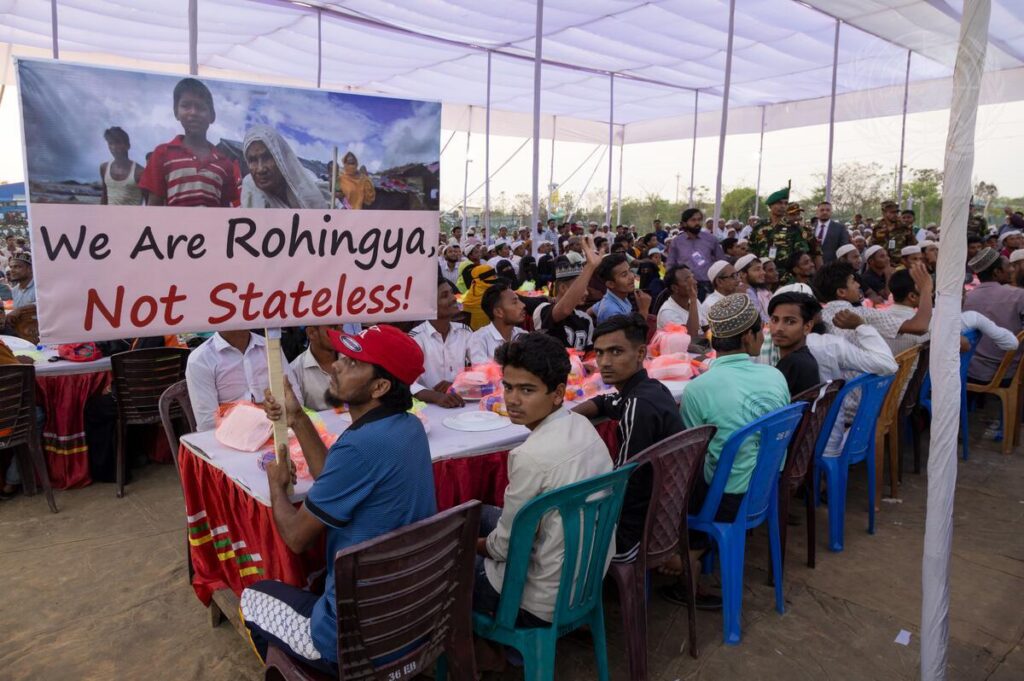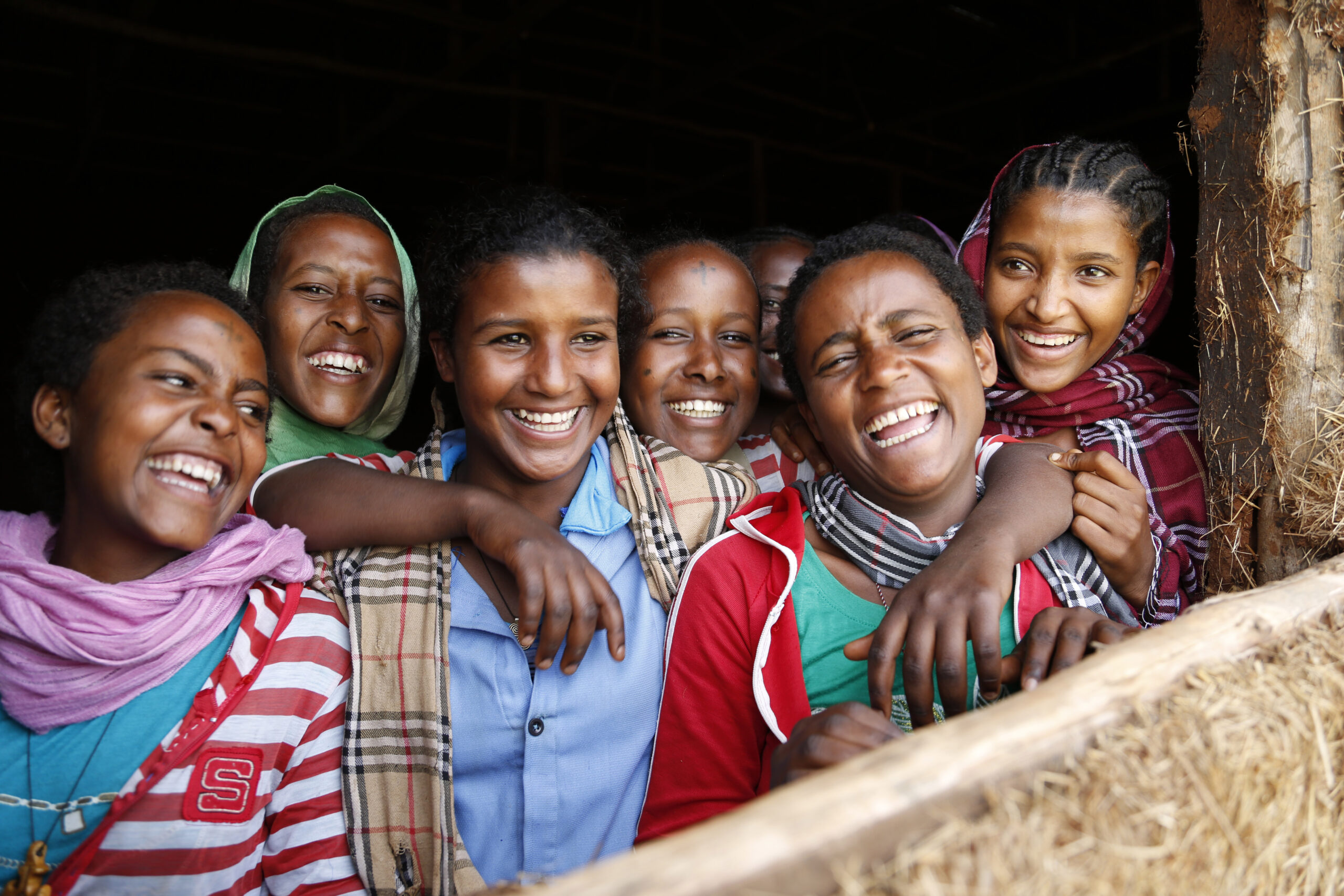CEO Insight: Advancing Religious Freedom

In the current political climate of tension, strained relationships and polarisation many of our rights are coming under fire. Among those rights is the fundamental right to freedom of religious belief.
Around the world millions are attacked, imprisoned, or sometimes killed for their religious beliefs and incidents are increasing.
Through our work at A4ID, I have witnessed firsthand the impact of religious persecution and how it leads to eroding the very fabric of pluralist societies and the democratic process.
Often, when we find freedom of religion restricted, we also find broader human rights under threat too.
Whether intolerance or systematic violence and repression, any attack on the freedom of religious belief shakes the very foundations of peaceful societies and puts back our hopes of building a better world. Now more than ever, it’s imperative we act.
A Crisis for Religious Freedom
In recent years, we have seen an alarming rise in religiously motivated violence and discrimination. From the ongoing persecution of the Rohingya Muslims in Myanmar, where military-led violence has displaced over a million people, forcing them into refugee camps in neighbouring Bangladesh, to the Uyghur Muslim population in China, who faces severe state repression, including mass detentions and forced assimilation efforts, a crisis that has drawn widespread international condemnation.
These cases underscore the vulnerability of religious minorities and the critical need for robust protection. And as these threats continue to escalate, it is crucial for lawyers, human rights advocates, and development organisations to defend religious freedom.
Freedom of religious belief (FoRB) is not just a fundamental human right, it essential for individuals and society to flourish. FoRB means inclusive communities where people are free to practice faith without fear of persecution, it means building resilience against extremism and it means standing for the dignity and safety of all people.
When religious freedoms are upheld, it strengthens social stability, enhances economic development, and supports democratic governance – key pillars for achieving the United Nations Sustainable Development Goals (SDGs).
Marginalizing religious groups or restricting their rights not only infringes on their fundamental freedoms but also impedes socio-economic progress, creating barriers to development that reverberate across society.
Global Trends and Developments
In recent years, significant strides have been made globally to promote and protect freedom of religion or belief (FoRB). The United Nations General Assembly has consistently adopted resolutions reinforcing this fundamental right, most recently in October 2021, emphasizing the need for tolerance, non-discrimination, and the elimination of violence based on religion or belief. Similarly, the European Union has demonstrated leadership by advocating for FoRB at international forums and providing substantial financial support to initiatives aimed at combating religious intolerance. Notably, the International Association for Religious Freedom, established in 1900, continues to play a pivotal role in fostering interfaith dialogue and advocating for religious freedom worldwide.
Despite these advances, the troubling global trend highlights the fragility of religious freedom in certain regions. By amplifying legal frameworks, supporting grassroots movements, and advocating for policy reforms we can help ensure that the rights of religious minorities are protected, and that freedom of religion and belief remains a global priority.
Empowering Advocates and Communities
At A4ID, we work at the intersection of law, sustainable development, and human rights. We recognise that the protection of religious freedom is intrinsically linked to the success of our collective global goals such as the SDGs and is essential in ensuring that no one is left behind.
We are working to strengthen religious freedom through innovative partnerships and impactful projects. One example is our collaboration with the Legal Aid Society in Pakistan to empower local communities in protecting religious freedom.
In March, six legal experts from Karachi conducted training sessions for members of the District Peace Committees (DPC) in Sindh province. These government-designated bodies play a pivotal role in promoting religious harmony and preventing conflict at community level. Despite constitutional protections, religious minorities in Pakistan continue to face systemic discrimination. This project focuses on enhancing the capacity of DPCs, equipping them with the tools to address minority issues, foster social cohesion, and reduce violence. By strengthening these local institutions, A4ID is helping to create a more inclusive society where the protection of religious freedoms becomes an achievable reality.
Another example is A4ID’s project with the International Bar Association’s Human Rights Institute seeking to train and empower human rights defenders from around the world to be able to document FoRB violations and effectively engage international mechanisms. This included sixteen virtual training sessions as well as two high-profile roundtables in London and Washington DC. The project brought together key stakeholders to share experiences and learn new skills, including advocacy skills, aimed at effective engagement with ultimate goal of improving state compliance with international human rights standards, and providing defenders with the tools to document violations and engage international institutions. By facilitating capacity-building and creating platforms for dialogue, A4ID continues to contribute to the global movement for the protection and promotion of FoRB, ensuring that local and international defenders are equipped to safeguard religious freedom in challenging environments.
Engaging Local Institutions and Communities
The success of A4ID’s initiatives lies in their ability to engage local communities and institutions that are most relevant within the socio-political contexts they operate in. By working with District Peace Committees, A4ID taps into an existing framework of local governance that directly addresses community-level issues, fostering an environment for meaningful dialogue and change. Similarly, training human rights defenders from regions where religious freedoms are under threat, empowering them with the knowledge and skills necessary to navigate complex political landscapes and advocate for lasting reform. These projects demonstrate that when interventions are tailored to the local realities – building on existing institutions and networks – they are far more likely to create sustainable impact.
A Call to Action
As we reflect on the strides made in protecting freedom of religion and belief, one truth stands out: the legal community holds immense power – and responsibility – in advancing these fundamental rights. Lawyers, legal practitioners, and human rights defenders must go beyond upholding the law; they must be champions for stronger, more inclusive protections at both national and international levels.
This involves engaging constructively with governments to uphold human rights obligations, offering pro bono legal support to individuals and communities facing religious persecution, and strengthening local legal systems to respond to violations with resilience and integrity.
By leveraging their legal expertise, their influence, and their commitment to justice, legal professionals can be powerful agents of change – helping to shape a world where freedom of religion and belief is not only respected but actively protected for all.
At A4ID, we believe in the power of law to create lasting impact. We call on our legal partners and allies to join us in this mission – stand with us as we work to defend religious freedom, reduce division, and build a future grounded in dignity, inclusion, and shared humanity.
FoRB cuts across several UN SDGs. Find out about A4ID’s SDG Legal Initiative – a space for global legal professionals to take action through partnerships – and become part of the sustainability solution.
To learn more about our FoRB work contact fizza.khawar@a4id.org

